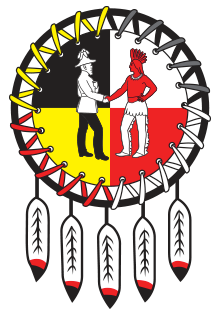Climate Change Health Adaptation Program
(refer to attachment, Erin Myers, erin.myers@canada.ca)
Description: Indigenous Services Canada’s Climate Change and Health Adaptation Program (CCHAP) was developed to build capacity in research by funding community-driven projects, enabling communities to develop health-related adaptation or action plans and communication materials that may help in adaptation decision-making at the community, regional and national levels with respect to human health and a changing environment.
This program will provide up to $100,000 annually for community-based or regional research and action oriented projects, to help southern First Nations minimize risks and adapt to the impacts of climate change on human health. Regional/region refers to an Eco zone, treaty or political zones or cluster of communities who want to work together on tackling climate change as a health issue.
![]()
Environment and Climate Change Canada
Indigenous Fund for Community-Based Environmental Monitoring
(Jamie Dawson, jaime.dawson@canada.ca)
Submission deadline: Wednesday, February 27, 2019
![]()
Government of Alberta
Indigenous Knowledge, Community Monitoring and Citizen Science
(Gleb Raygorodetsky, Gleb.Raygorodetsky@gov.ab.ca)
Crown-Indigenous Relations and Northern Affairs Canada:
Engaging Indigenous Peoples in Climate Policy Program
(Sharon Hanley-Smith, Sharon, sharon.hanley-smith@canada.ca)
Funding for:
- Building capacity to engage on climate change issues (training or salary for staff)
- Planning and implementation of community or regional climate change engagement
- Strategy writing, policy and recommendation develop, and priority setting
Indigenous Community-Based Climate Monitoring Program
(Marlene or Nicole Cerpnjak (AADNC/AANDC))
The Program provides support for the design, implementation, or expansion of long-term community-based climate monitoring initiatives. Activities that are eligible for funding include:
- Community engagement on climate change information, priorities, what and where to monitor, and historical and current climate observations
- Hiring and training climate monitoring staff within the community
- Purchase and rental of monitoring equipment
- Assessing and managing climate data
- Monitoring key climate indicators related to weather, wildlife, vegetation, land and water
- Seeking professional services to support climate monitoring initiatives
- Communicating climate monitoring results to inform community decision-making
First Nation Adapt Program
(Alberta Rep – Robina Scrivener, robina.scrivener@canada.ca)
First Nation Adapt supports projects with a strong community focus that build capacity within communities to conduct work and monitor the changing climate. The program also promotes the gathering of Indigenous knowledge and its incorporation into planning for climate change alongside Western scientific knowledge. The program provides support for the following types of projects:
- Risk assessments of climate change impacts on community infrastructure or emergency management
- Development and assessment of adaptation options
- Cost benefit analysis of adaptation options
Additional community funding is available to better understand the extent of potential flooding and plan adaptive measures. The floodplain mapping portion of the program provides support for communities to:
- Participate in regional watershed management processes
- Collect and share regional watershed data
- Develop floodplain maps in order to identify flood risks to local infrastructure
- Develop best practices, tools and adaptation options for flood management
Indigenous Services Canada:
Climate Change Health Adaptation Program
(refer to attachment, Erin Myers, erin.myers@canada.ca)
Description: Indigenous Services Canada’s Climate Change and Health Adaptation Program (CCHAP) was developed to build capacity in research by funding community-driven projects, enabling communities to develop health-related adaptation or action plans and communication materials that may help in adaptation decision-making at the community, regional and national levels with respect to human health and a changing environment.
This program will provide up to $100,000 annually for community-based or regional research and action oriented projects, to help southern First Nations minimize risks and adapt to the impacts of climate change on human health. Regional/region refers to an Eco zone, treaty or political zones or cluster of communities who want to work together on tackling climate change as a health issue.
Climate Change Health Adaptation Program
(refer to attachment, Erin Myers, erin.myers@canada.ca)
Description: Indigenous Services Canada’s Climate Change and Health Adaptation Program (CCHAP) was developed to build capacity in research by funding community-driven projects, enabling communities to develop health-related adaptation or action plans and communication materials that may help in adaptation decision-making at the community, regional and national levels with respect to human health and a changing environment.
This program will provide up to $100,000 annually for community-based or regional research and action oriented projects, to help southern First Nations minimize risks and adapt to the impacts of climate change on human health. Regional/region refers to an Eco zone, treaty or political zones or cluster of communities who want to work together on tackling climate change as a health issue.
